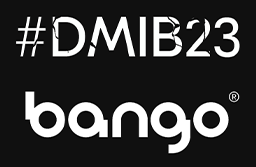
Digital marketing is broken
A new manifesto for effective, ethical, online targeting
The dream of digital marketing was simple. More informed, more effective, and more measurable campaigns, capable of reaching people in new and exciting ways.
Twenty years later and the dream has not delivered, and our industry is in trouble. Campaigns are less targeted, less creative, and less effective than ever before. Ruining user experiences, obscured by meaningless metrics, mistrusted by regulators and loathed by the general public, digital marketing — and online advertising — is a mess. The idea remains compelling, but the execution is terrible. It’s time for a change.
We built it. We broke it. Now we’re going to fix it.
Don’t take what you don’t need
Digital marketing is a glutton, hoarding every scrap of data and sucking customers dry. The single customer view is a perverse myth that must be abandoned. Customers don’t want to be part of your surveillance network and you don’t need them to be.
The most disappointing part of this new reality is that marketers don’t even use 99% of the data they collect. Instead of mass harvesting, marketers must take a step back – set their strategy first, understand what they want to achieve, and figure out what limited data sets they actually need.
We vow to collect only the data that is strictly relevant to what customers are trying to buy. If it wasn’t freely given and it doesn’t relate to what or how people buy, we won’t use it.
We won’t take what we don’t need.
Segment, don’t stereotype
If we are going to talk seriously about brand purpose, about diversity, and about representation, we need to remove stereotypes from the heart of what we do. A-B, C1-2. Males. Females. Black. White. Boomers. Gen Z. Demographic segmentation relies on outdated stereotypes based on race, age and gender that don’t accurately reflect people’s interests.
We need to think like our customers and segment people based on what they do, not who they are. We vow to deprioritize demographic generalizations, focusing exclusively on the data that’s relevant to buying.
We vow to focus on the products and services people want, whoever they are.
We will segment, not stereotype.
Run fewer, better ads
Cheap ad production and a ‘test and learn’ mentality has resulted in an internet awash with crap ads. Where once, creatives and consultants would decide what’s best, now we throw all our garbage out into the world to see what lands on target. That’s not going to cut it – we need to bring the same creativity and storytelling associated with traditional advertising into the digital world.
We can’t keep expecting our customers to sift through our crap to find what they want. We vow to return to campaigns designed with creative excellence in mind, and to target them exclusively at those they are designed to reach.
We will run fewer, better ads.
Don’t be a creep
Today’s consumers have a clear sense that they’re being watched. That they’re being spied on, followed and harvested for all they’re worth. Digital marketing has positioned this unease as a new normal, but it’s not normal. And it can’t last.
Obsessive tracking has become the original sin of digital marketing. Expectations around privacy will always be evolving, but as those shifts happen it’s our responsibility to keep up with what’s acceptable to our customers. We cannot keep watching customers through binoculars in the park, pretending that it’s normal.
We vow to drop all invasive technologies that do not rely on fully anonymized data and explicit, first-party consent.
We will not be a creep.
Don’t let the metrics lie for you
Digital technology was meant to make marketing more transparent, but now the opposite is true. Businesses are awash with meaningless digital metrics, meaning any campaign can be proved to succeed with the right graph pointing in the right direction. Marketers are reluctant to let go of their digital metrics comfort blankets, but the reality is that business leaders are sick of seeing them.
Their use makes the entire marketing industry seem facile. We vow to never hide behind meaningless digital metrics, instead to communicate in clear, tangible objectives that tie directly to business value and the bottom line.
We will not let the metrics lie for us.
Treat digital marketing as a discipline
If we want to get better, then we need to get to the root of the problem. Education. The fast-evolving nature of digital marketing means that most marketers have learned on the job, with formal education being perceived as stuffy, theoretical, and out of touch.
Training and education – whether formal or otherwise – is a vital part of understanding and improving both the ethics and effectiveness of digital marketing. We vow to create, share and value new opportunities to learn as an industry.
We will treat digital marketing as a discipline.
It’s our responsibility to fix digital marketing
As digital tools have made marketing faster and easier, we risk becoming lazier as an industry. We must fight back against that urge. Digital marketing is broken, but it’s not beyond repair.
None of these issues are going away on their own. None of them are “industry problems”, or “technology problems”, or even our boss’ problems. These are our problems — marketing problems — and it’s our responsibility to fix them. We vow to incorporate the promises made in this manifesto and to act upon them in our day-to-day marketing roles.
We will only work with industry partners that also adopt the tenets of this Manifesto. This is practice, not theory.
It’s our responsibility to fix digital marketing.